Research is at the center of the Department of Occupational Therapy. Our mission is to improve the health and well-being of individuals, communities, and society through research and scholarship that focuses on the relationship between people, everyday activities (occupations) and environments. Our faculty and emeritus faculty have a productive and diverse research focus, covering a wide range of topics that fall under three distinct research areas.
Research Areas
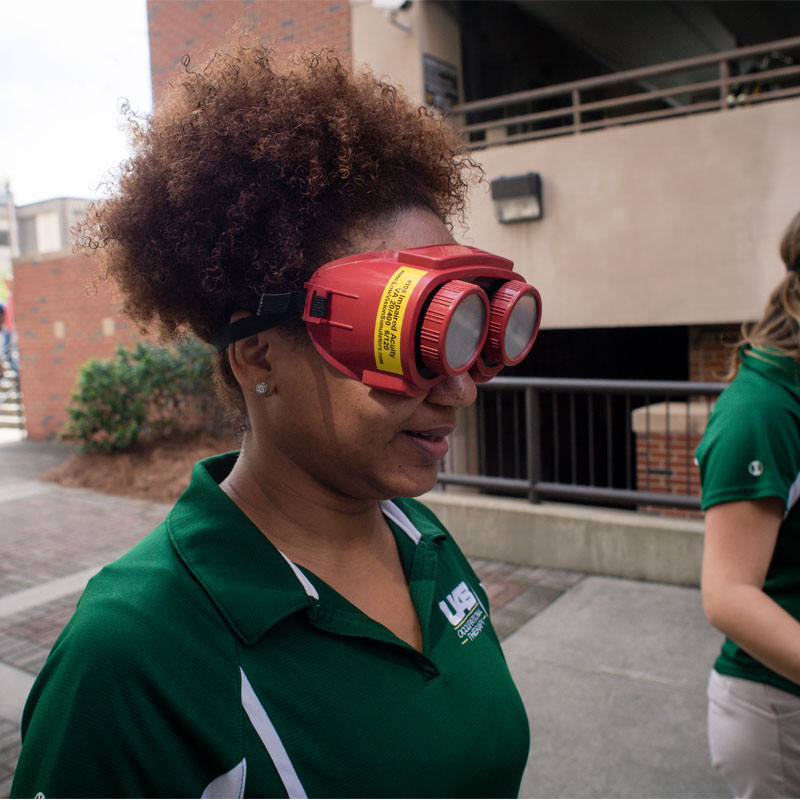

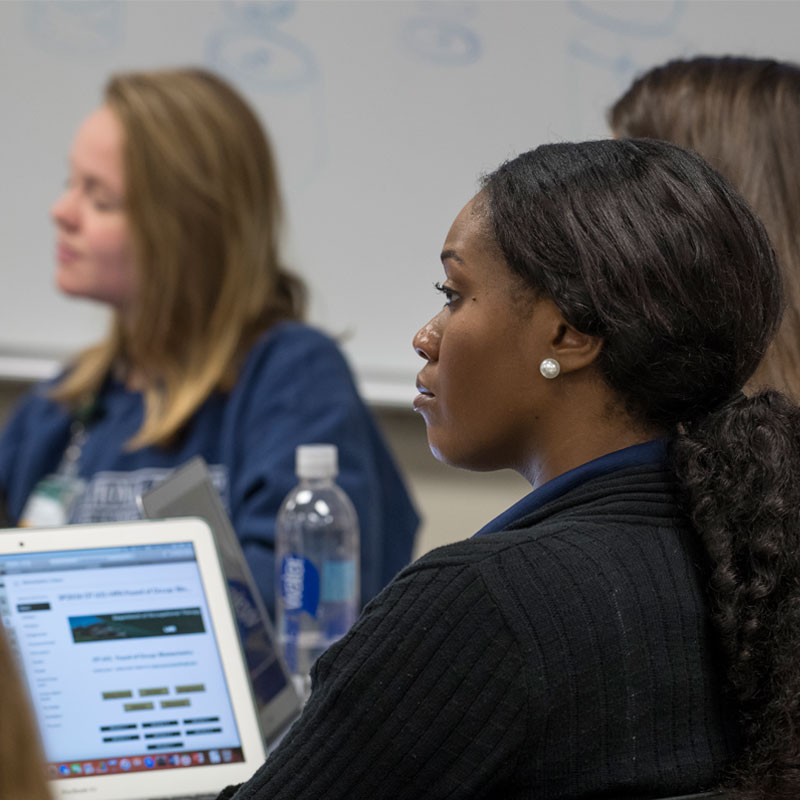
Faculty Research
Beth Barstow
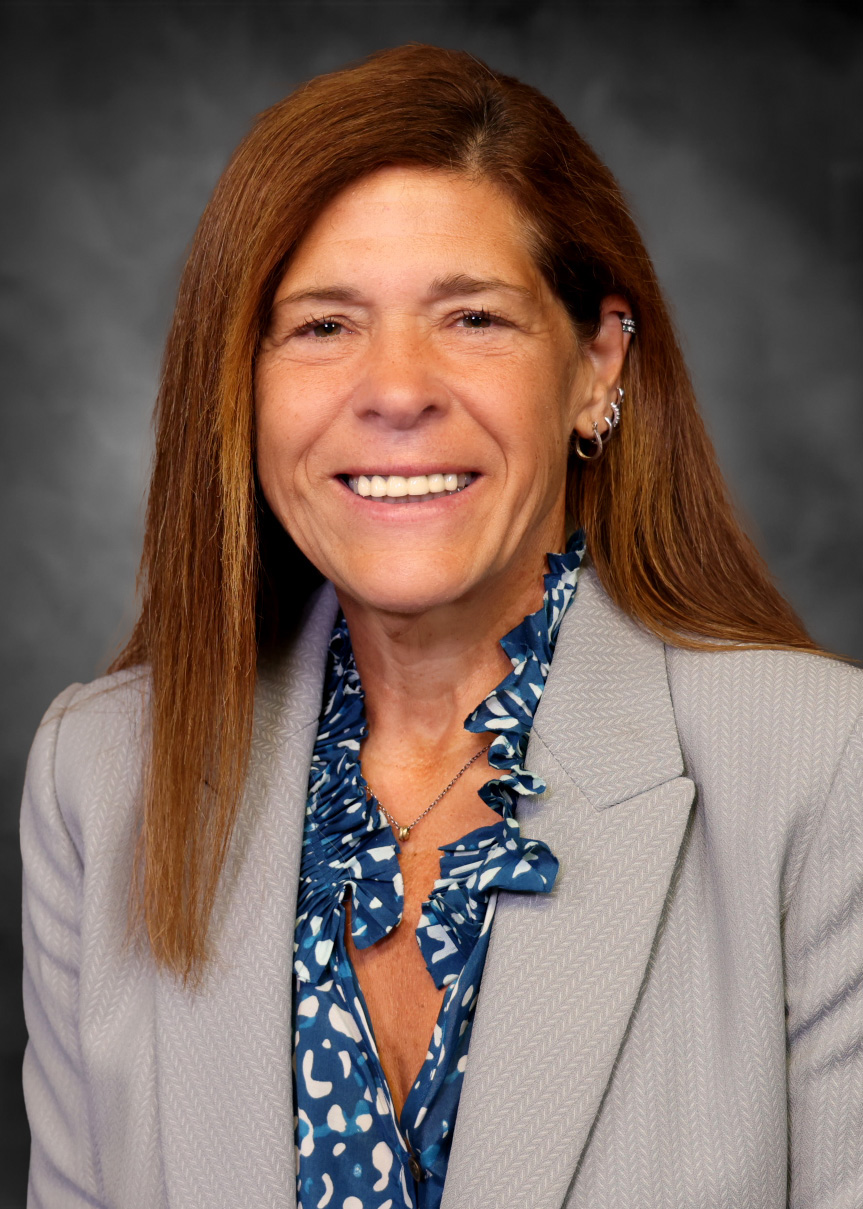
Dr. Barstow’s research is focused on the influence of low vision and disability on participation in occupations and access to healthcare systems. She is a PI of a NIDILRR grant titled “Barriers, Facilitators and Priorities for Adopting Universal Design Principles by Equipment Manufacturers and Public and Private and Recreation Facilities: A Mixed Methods Study. The aim is to explore factors influencing the universal design of programming, equipment and environments in community fitness environments ultimately leading to a framework based on the priorities of personnel and patrons. Dr. Barstow is also a team member of a grant to develop a tool kit to facilitate patient-provider interaction as part of coordinated multiple sclerosis care. The aim of this research is to develop and study integrated models to promote exercise participation through the healthcare system for persons with multiple sclerosis.
Jewell Dickson
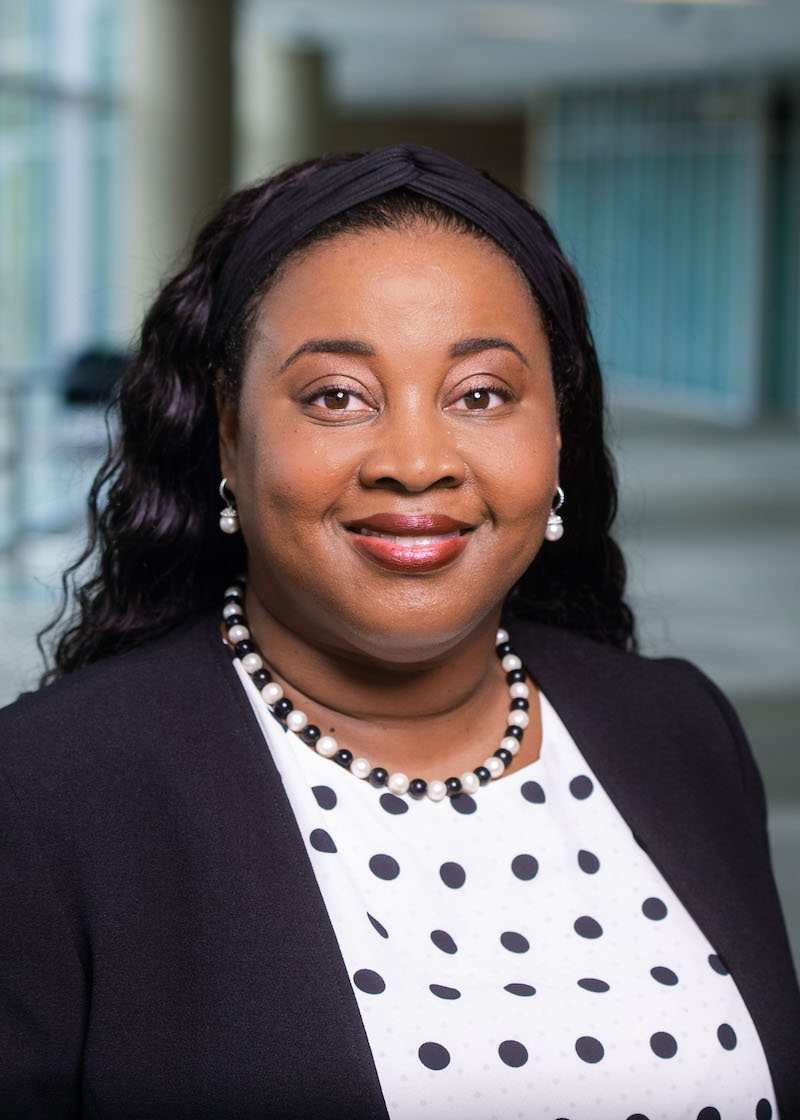
Dr. Dickson’s research is focused on self-efficacy and occupation in incarcerated women, global health, and assistive technology. One of her primary research aims is to develop occupational therapy programs that can help incarcerated women enhance their wellness and self-efficacy. Her recent work also includes the development of an international partnership to address assistive technology needs for children with disabilities in Jinja, Uganda, and a systematic review of pedagogical methods for cultural awareness in occupational therapy education.
Sarah dos Anjos
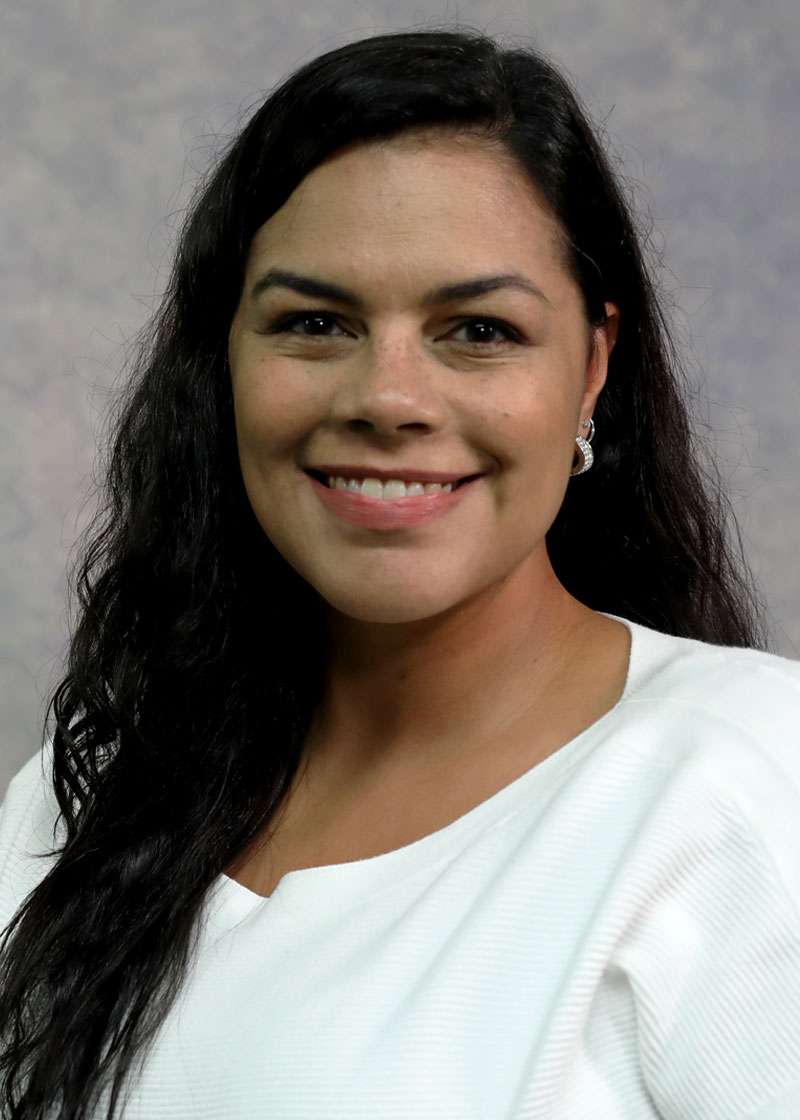
Dr. dos Anjos’s research is focused on developing and enhancing rehabilitation approaches that help individuals with stroke recover and maintain function and quality of life. One of her primary research aims is to develop rehabilitation strategies that help individuals with stroke transfer skills gained in the clinic to real-world settings. Her recent work in this area includes a faculty development grant to determine if combining behavioral strategies with robotic treadmill gait training enhances long-term retention of motor skills in individuals with stroke. Her research interests also include the use of constraint-induced movement therapy for people with stroke. Dr. dos Anjos is dedicated to advancing the integration of stroke rehabilitation research with clinical care and to including in her research the perspectives of individuals with stroke, their caregivers and families, and rehabilitation professionals.
Chris Eidson
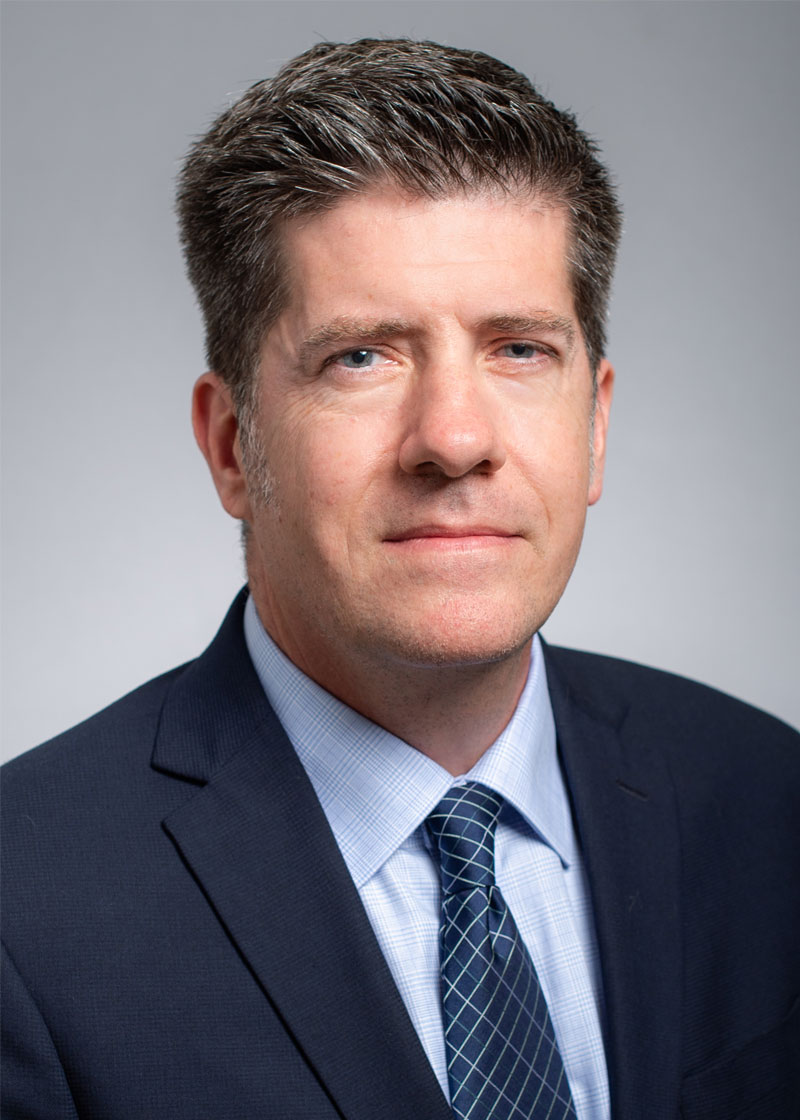
Dr. Eidson’s research is pedagogical in nature, either pertaining directly to teaching and learning, or pertaining to content specific to the coursework that he teaches. He has extensive teaching experience in different venues and topics, having also done numerous presentations at the state, regional and national level related to service learning and team-based learning. Dr. Eidson has an appointment through the Center for Teaching and Learning (CTL) at UAB as a Teaching Fellow, and an appointment as a Faculty Scholar through the Center for Interprofessional Education and Simulation (CIPES) at UAB. He is also a certified Consultant Trainer through the Team-Based Learning Collaborative (TBLC). He has received research funding through UAB and the TBLC.
Areum Han

Dr. Han’s primary research interests are developing and testing psychological and behavioral interventions for caregivers of people with dementia. She has served as the principal investigator (PI) or co-investigator (Co-I) for various research projects to develop and test interventions for caregivers and health care professionals of people with dementia, for older adults living alone or who are depressed, and for people with neurological disorders. She has received external grants from the Korean government, including awards from the National Research Foundation of Korea (role: PI) and the Korea Health Industry Development Institute (role: Co-I), which aimed to evaluate empathy enhancement programs in 101 family caregivers of people with dementia and in 104 formal caregivers and 105 social workers who worked with older adults who live alone. Currently, she is also serving as Co-I of a Korean government fund that aims to develop a robot counseling platform based on behavioral activation for improving physical health and decreasing the loneliness of older adults who are lonely and depressed. Dr. Han’s current research focuses on acceptance and commitment therapy (ACT). Recently, she has received grants from foundations in the United States, including the American Occupational Therapy Foundation Intervention Research Grant (role: PI) and the Alzheimer’s Association Research Grant (role: PI), that aims to examine the effects of coach-guided videoconferencing ACT on mental health among distressed family caregivers of people with dementia in a 1-year pilot randomized controlled trial (RCT) and a 3-year RCT, respectively. She is expanding her ACT studies to people with spinal cord injury and has conducted a preliminary study to prepare for external grant applications.
Gavin Jenkins
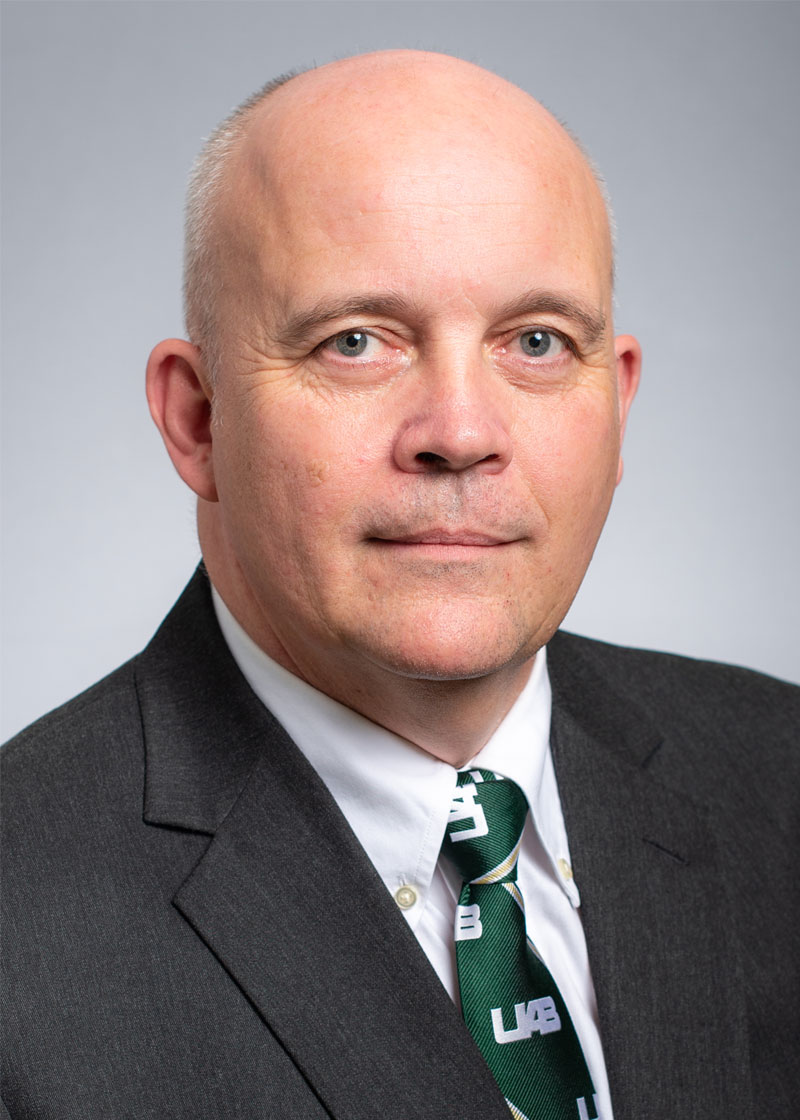
Dr. Jenkins research is focused on the dynamic relationship between the environment and the person, investigating how the environment influences the person but also potentially how the person influences and modifies the environment. The environment can facilitate or limit participation in everyday life and Dr Jenkins specifically focuses on how green spaces, such as city parks, can impact the health and wellness of users and how the learning environment can be influenced by modifications to the physical space. In addition, Dr Jenkins focuses research on the impact of arts and crafts on health, investigating the role that arts, such as magic can have on individuals through the lens of the Model of Human Occupation (Taylor, 2017). Dr Jenkins has received research funding through the Center for the Study of Community Health and the Mississippi Developmental Disabilities Council.
Valley McCurry
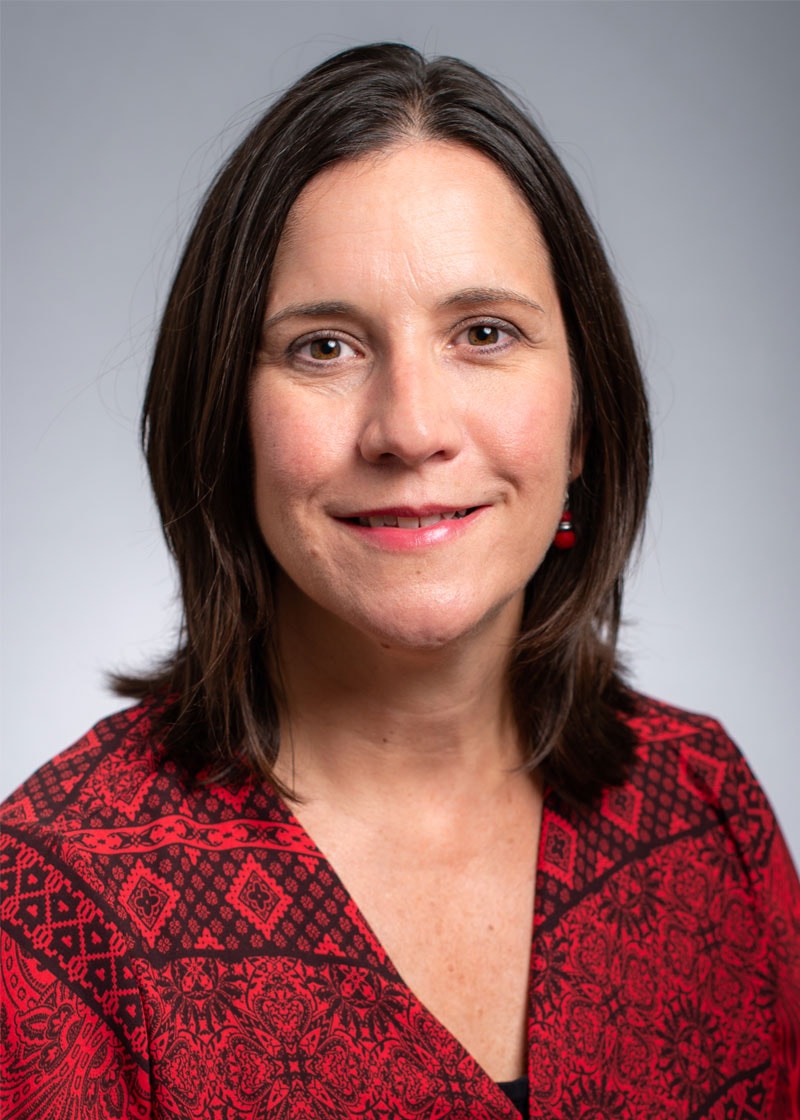
Dr. McCurry’s research is focused on mental health and occupational therapy. Recent projects include exploration of stigma and stereotypes among occupational therapy students, the impact of service learning on self-efficacy and beliefs related to mental illness, and the investigation of factors that influence use of occupational therapy assessments in acute mental health settings.
Sarah Tucker
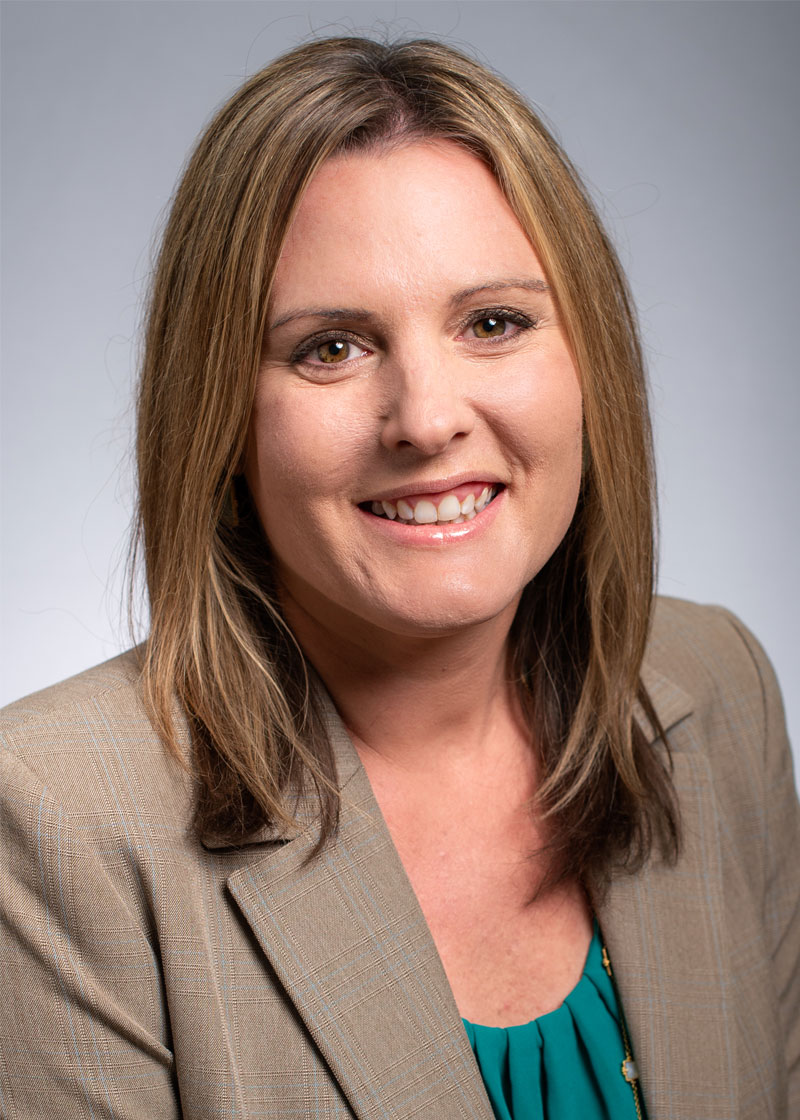
Dr. Tucker’s research is focused on the cycle of incarceration, including at-risk youth and similar vulnerable populations who often encounter the criminal justice system. Dr. Tucker’s research interests include the integration of occupational therapy as a strategy for preventing incarceration and for reducing recidivism rates. Her background in pediatric occupational therapy created a foundation for her doctoral research, where she studied the foster care system specifically related to foster parents’ experiences supporting the mental health and well-being of the children in their care.
Jason Vice
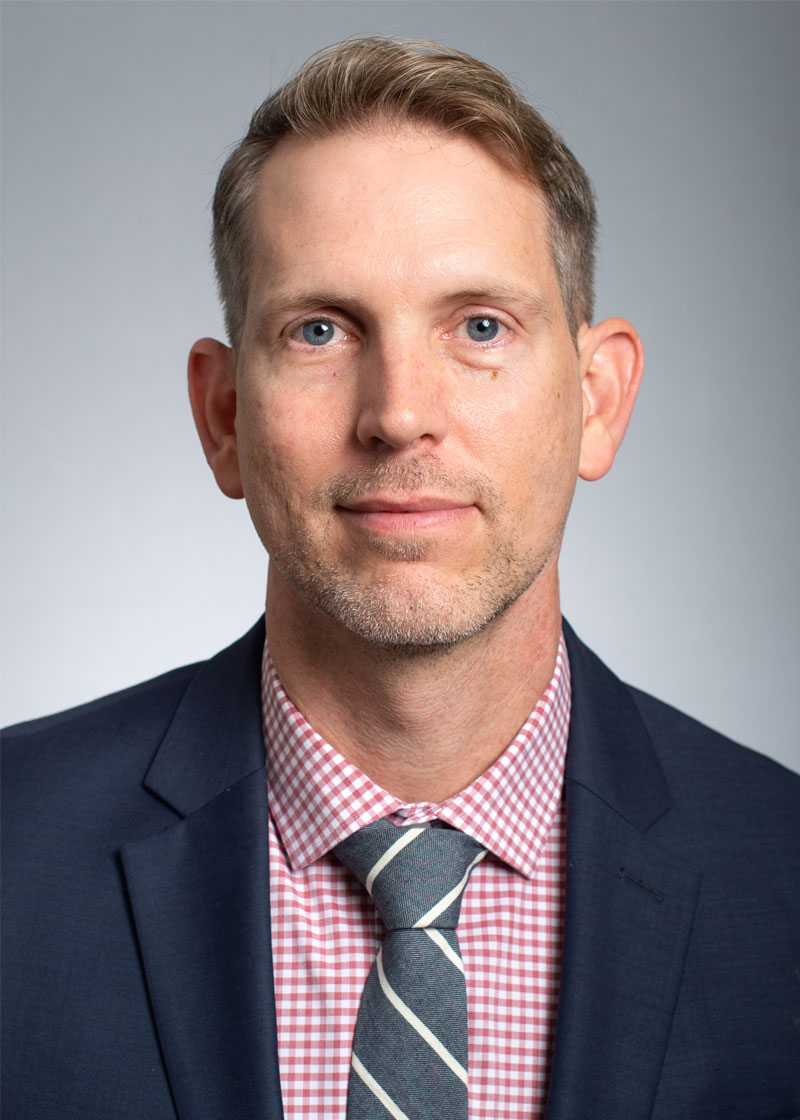
How do learning and experience influence neuroplasticity in the aging brain? Experience-dependent plasticity is evident as the brain matures, however questions remain about the persistence of these underlying mechanisms across the lifespan. Critical periods known to exist in neural development suggest that the efficacy of such mechanisms declines with age. However, considerable evidence from rehabilitation research suggests the brain is at least partially capable of neural reorganization. Dr. Vice’s research uses the visual system as a model for understanding the conditions in which healthy older brains reorganize in response to environmental demands. In addition, Dr. Vice is interested in the functional impact of neurodegenerative disease on vision-dependent occupations and the development of effective clinical treatment strategies. His work is funded through collaboration with researchers from Civitan International Research Center and the UAB School of Medicine.
Laura Vogtle
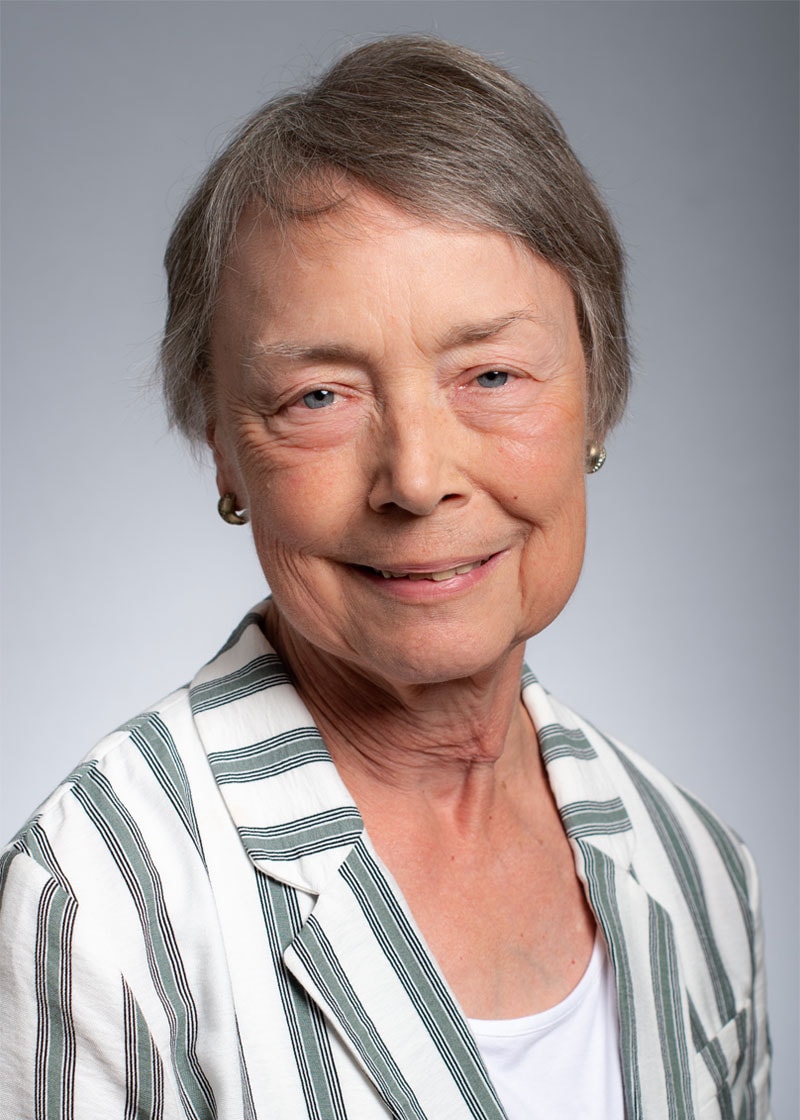
Dr. Vogtle’s research has focused on secondary conditions experienced by adults aging with cerebral palsy, as well as the impact of vision loss on environmental safety and falls. Another line of research addressed quality of life in older adults with epilepsy. Dr. Vogtle has received funding from the Centers for Disease Control and Prevention, as well as from several foundations. A secondary interest has been on providing interdisciplinary education with funding from the Department of Education for the last 20 years, as well as internal funding from the Center for Teaching and Learning to develop an interprofessional course for health professions students at UAB.
Brooks Wingo
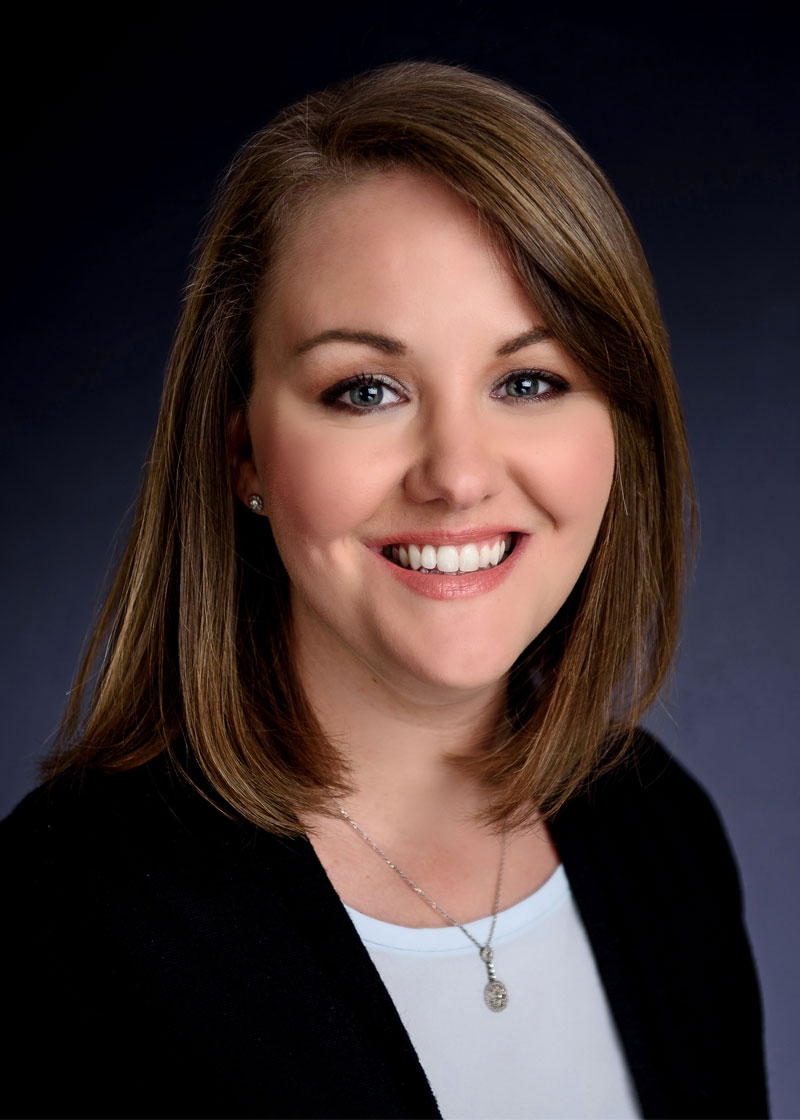
Dr. Wingo’s research interests are in the areas of lifestyle intervention for cardiometabolic risk reduction in people with physical disabilities and complex medical conditions. Her most recent research efforts have focused on understanding the role of dietary patterns on cardiometabolic health and secondary symptoms in adults with spinal cord injury (SCI) and Multiple Sclerosis (MS), as well as adapting evidence-based health promotion interventions for adults with these conditions via telehealth. She has also developed a parallel line of research focused on adaptations to current clinical methods of anthropometric and body composition assessments that better represent the body composition differences seen in individuals with physical disabilities. She completed postdoctoral fellowships in Comparative Effectiveness Research and lifestyle interventions for obesity. These trainings were focused on development, implementation, and evaluation of real-world clinical trials that incorporate patient-centered methodologies into dietary and exercise interventions for special populations. She has experience conducting clinical trials of interventions for minority populations, older adults, patients with multiple medical conditions and adults and children with physical disabilities. She has received funding from the National Institutes of Health, Paralyzed Veterans of America, and the National MS Society.
Hon Yuen
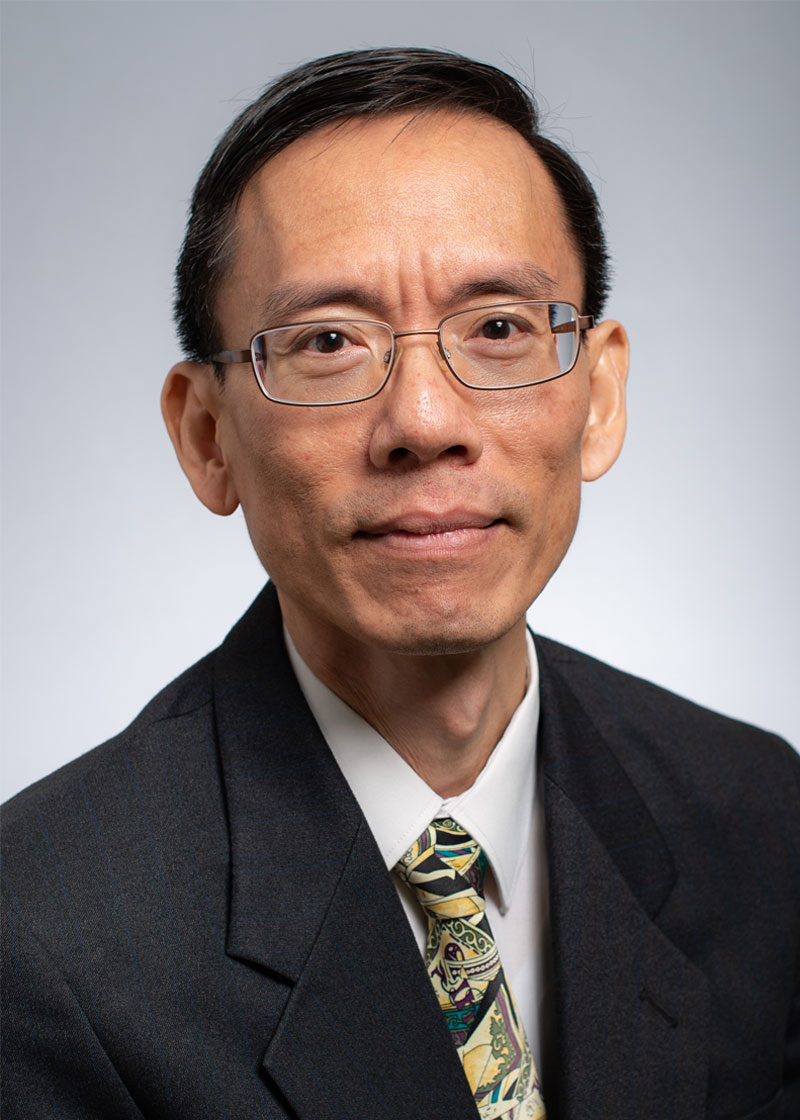
Dr. Yuen is a professor and the Director of Research in the Department of Occupational Therapy at the University of Alabama at Birmingham. He received his educational training to become an occupational therapist at the University of Queensland, Australia. His doctoral training focuses on the area of Research, Evaluation, and Measurement Methodology at the University of Florida. He has more than 25 years teaching experience in several occupational therapy programs in the United States as well as abroad, and has received funding from National Institute of Health (NIH) and several Foundations on different grant projects since 2002.
He has been an NIH grant reviewer since 2006, and has more than 100 peer-reviewed publications in the field of occupational therapy, rehabilitation, health services, and biomedical sciences as the lead or corresponding author. One of his current roles as the Director of Research in the Department of Occupational Therapy at UAB is to mentor faculty and students in grant writing and publications.